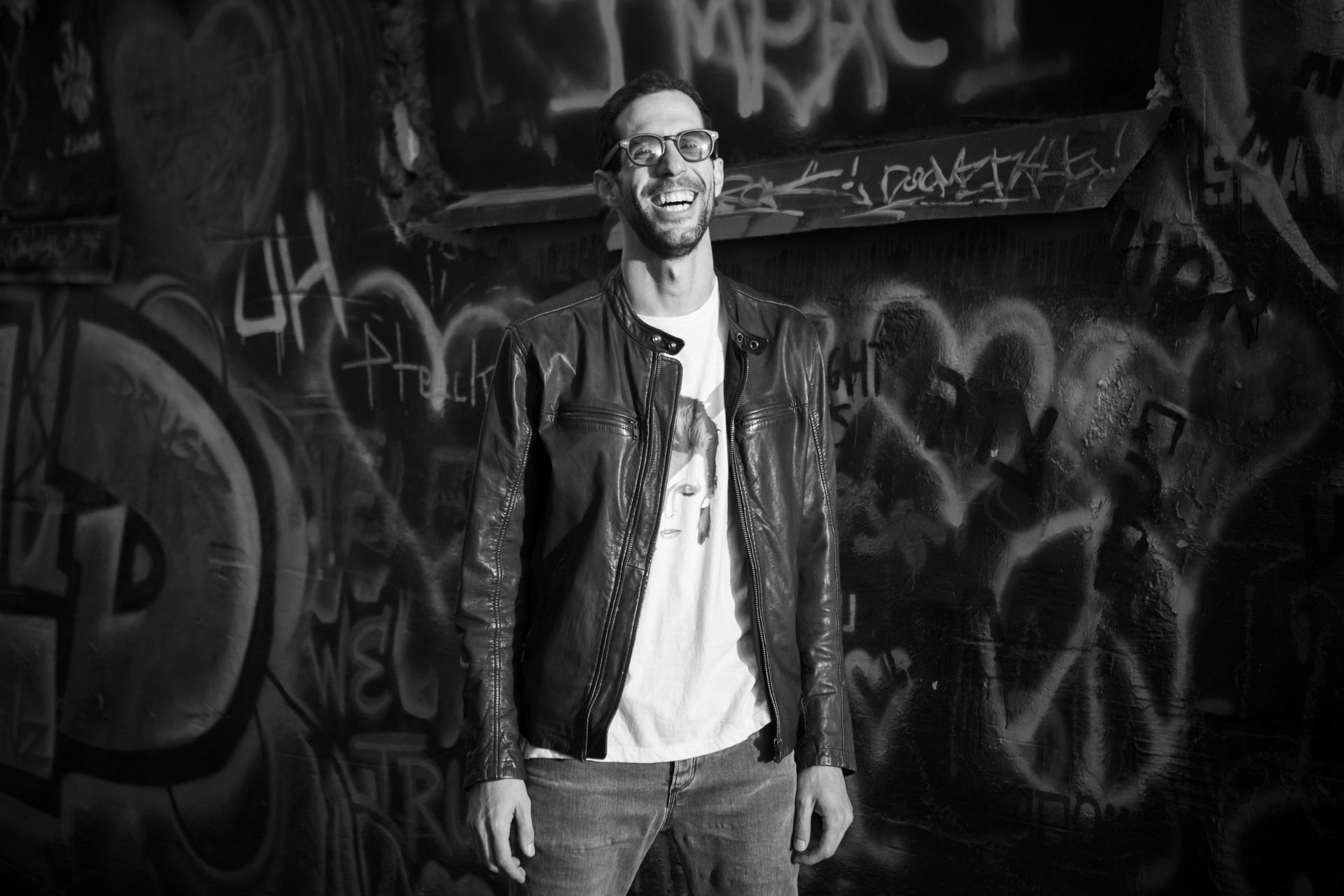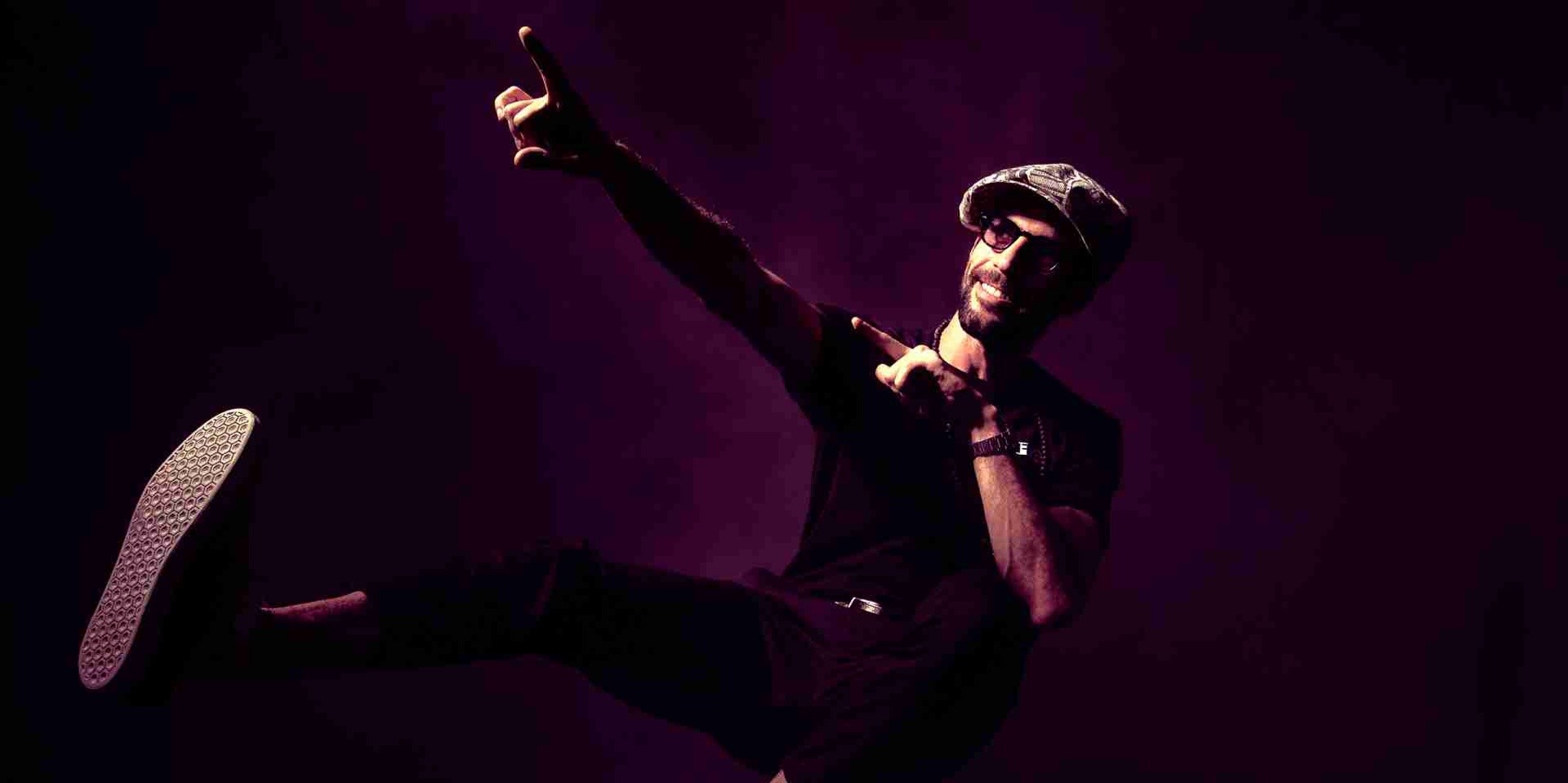The dance floor is a sacred space – the main reason that truism has prevailed across the ages is because, in places where that wisdom holds true, the role of the DJ as a cosmic ordering force hasn’t changed. Orio Leshem, co-honcho of the collective Fat Fish Familia, is one such figure in Singapore. His parties take a sledgehammer to the limits of the genre, expanding the blast radius of entire canons and histories of music beyond the club, beyond the body, a consciousness-expanding experience forged in the crucible of love, sincerity and impeccable taste.
Like Fat Fish shindigs, Orio’s story is florid and compelling. His is a life so shaped by music, he cannot help but be a light-giving source when he’s on the decks.
Below, he takes us through his approach to music and the role of the DJ.
Fat Fish has really blown up over the last two years. But before that, let's talk about your story.
I was actually born in Singapore. Back in the '80s, my father consulted the Singapore military. Then, some lady from Orchard Towers came to him and told him that she's pregnant. Just kidding!
When I was 21, after I finished my national service in Israel, I went to my brother's in the United States and I travelled a lot. After a year-and-a-half over there, we got offered to open a company in Singapore, so we moved here. I was the CEO for a few years and brought the company a few million in revenue a year, but it never was my passion.
I won this entrepreneur award for best retailer and small company growth in Southeast Asia. I was on stage, in a tuxedo, with all these important people, which was nice, but two weeks later, I had a gig in Tokyo. At the end of that night, I realised I was so much happier getting applause from 200 people for that, than from 2000 people for an entrepreneur award.
I got back home, talked to my brother, and told him I wanted to quit the company. Luckily, my brother and my family were super supportive; they told me I should do it.
But I also didn't find my scene in Singapore, so I just started my own house parties for friends. This grew and grew and we started to do boat parties. So, that has been my full-time job for two years. That's one of the main reasons why Fat Fish grew so much in the last two years, because my focus has been on it.

How did you get into DJ-ing and what do you decide is worthy of you DJ-ing?
I used to produce music – hip-hop, reggae and Israeli dance music – when I was a teenager. When I was 16, I already performed in clubs meant for people 21 and older. Those were European clubs in Jerusalem.
I'm kind of a control freak. I think all DJs are control freaks; they usually control the music for their friends at house parties, or in the car. I noticed that people were digging the music I played. Since the 2010s, I started to hold more house parties.
When I started to DJ in Singapore, I understood that I needed to play techno if I wanted to play in the underground scene. And I know techno, although it's not my major genre or what I love the most, but I like and appreciate it. Later on, I tried to include more music I like, such as funk, disco and soul.
The reason I like these sounds goes way back to car rides with my parents. I grew up listening to Aretha Franklin, Bee Gees, Queen, Pink Floyd and Led Zeppelin. I also play a lot of rock music when I'm DJ-ing; sometimes I play more rock than disco in my sets.
And how did Fat Fish begin?
I had two really good friends from home who used to work for me in Singapore, and we wanted to start doing parties seriously. When we sat down and tried to think of a name, I asked them, "What's freer – birds or fish?"
They said birds but I thought fish are a bit freer. When I thought of fish, I thought of whales. I read that whales can dive really deep, and usually, birds can't fly that high. So, we decided to call it Fat Fish, but I also thought it's a bit too obvious. So, I created a story.
Fat Fish is actually an energy connecting your brain and your heart, and when it loops around, it looks like a fish. That's the Fat Fish energy. It's when I know I have the momentum at a party, and I can see how many people let themselves be free. I call this moment the "Fat Fish moment" – when you don't think and do what your heart desires: To scream, jump, laugh and enjoy yourself. That's the goal at every party – to get to this crazy level of energy on the dance floor.
The music is usually free-style; we go from disco to house to a drop of techno, to make sure that the dance floor is on fire.

There's no restriction to your sound.
Yes. I don't believe in limits. I appreciate two to three-hour sets that sound like they're connected by the same thread, and those aren't too hard to do if you organise it beforehand. But, I'm getting bored of that. I like to surprise the dance floor. I like to make them expect the unexpected.
I want to break people out of the cycle we're stuck in. I hate it when people tag venues or events to genres. And it's like, "If I love underground music, it means I love techno". There's a lot of structure around how things are supposed to be. I don't believe in how it's supposed to be; I believe in the present.
If I don't feel the dance floor and I'm not playing the music I love the most, I'm going to try out something else that I like! I'll try to find the vibe that works the best for that particular dance floor. Sometimes, you go to places where most of the people are not there for the music. You can play disco, which is something you love, but they're not going to feel it. So, you try to do something else to make them feel and connect.
My job is to make the dance floor sweat and go back home with shaky knees, tight muscles and smiles on their faces.
Especially over the last two years, I've come to hate it when DJs say, "I'm here to educate people".
That's interesting. What is the role of the DJ, to you?
I think, unless you've gone to university and studied education, stop saying you're here to educate people. Give some respect to the teachers. We're not educating no one.
We can open people's minds and open doors. I love to take people out of their comfort zones. I love it when people ask, "What is this genre?". I like it even more when I don't know the answer.
I love it when people Shazam a track, because I know they're going to go back home, YouTube it, and see where it'll lead them. That's when I know, they've gotten themselves into the right cave.
But I'm not here to educate anyone. I'm just here to show you what I like, what I believe is quality music and what I believe you need to know. Because, if you like techno, I believe you should know where techno comes from. So, I'll try to take you back to the early '80s and play something that's the root of techno. It's about going back to the future. All the sounds we hear today come from the past. People don't understand that house music came from funk and soul. And, disco and funk came from gospel and the Church.
For me, it's like a circle. If you ask me why I play what I'm playing, it's because as a kid, my favourites used to be Dr. Dre and Snoop Dogg. As I grew up, I found out more about where their music came from. Most of them used samples from funk and soul. So, I started from soul and gospel. As a teenager, I really loved hip-hop. Now, it's all connected.

In Singapore, what keeps you optimistic about doing what you do?
What keeps me optimistic are people such as underground club owners and promoters, who keep trying to grow the scene. It's the people taking risks and getting out of their comfort zones to create pop-up events and street parties outside of clubs, as well as the clubs that are growing.
However, I want to be very optimistic but realistic.
DJs have always been around, but they can't create a scene if they're not willing to take risks. And unfortunately, there aren't enough DJs taking risks in Singapore, to create something beyond just the dance floors in clubs. If clubs close tomorrow, they'll be back in the coffee shops and restaurants. It's important to take risks if you want to grow.
If this younger generation – I'm talking about the 21 to 25-year-olds – isn't going to give everything to keep this scene alive, it could go backwards one day.
Catch Orio at Fat Fish presents Soul Clap, at the Kilo Lounge, Thursday, 7 November, from 9pm onwards. Entry is $25 (early fish) and $40 (door). Get your tickets here.
Like what you read? Show our writer some love!
-

